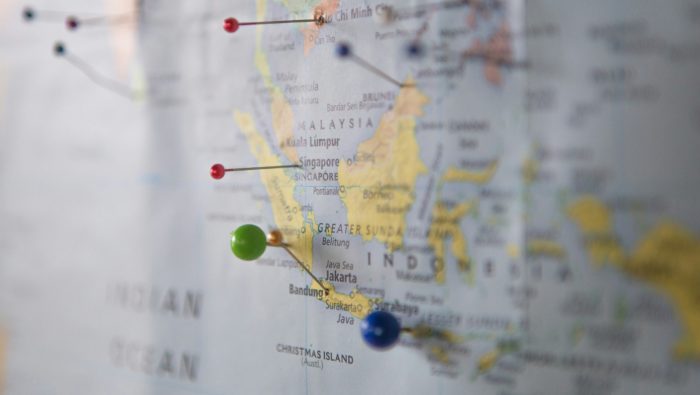
Go talk to people: Navigating sensitive research about the Indonesian state, in Indonesia, in a pandemic

For my research, I confronted my own government about its most successful propaganda: nation-building. Since childhood, we Indonesians have been fed a hearty diet of official history narrative that depicts Indonesia as an ageless nation, the world’s largest archipelago, fated to ‘unite’ in spite of diversity. This is, of course, a myth. The nation was conjured up by the founders of the state to convince 17,000 islands of culturally distinct communities, whose historical trajectories scarcely intersected, that we belong under its sovereignty. Unity is core to this national identity, and, by extension, the very existence of the state. Consequently, questioning this vision can be—and indeed has been—seen as threatening the unity of the nation and the integrity of the state.
By focusing on heritage, I picked perhaps one of the least volatile routes to explore nation-building: how do characteristics of ‘Indonesia’ become saturated into the songs, dances, monuments, and sites selected as heritage by the government? But volatility aside, this still meant I needed access to various archives and agents of the state. And to address this sensitive topic, confronting a bureaucratic state so openly averse to transparency, I had to be careful.
Oh, and there was also a pandemic.
First, the legal side: I needed to analyse regulatory instruments to understand how national identity becomes encapsulated in the official forms of heritage. In this pursuit, I hit unsurprising roadblocks.
I had been fairly warned that access to parliamentary archives, which should have been public information, would be gatekept. After submitting 40 requests for the records of debate about heritage-related Bills, I received a phone call from a clerk, who rejected them all because granting me access would have, somehow, constituted a national security risk. At the end of the 2-minute call, she cheerfully said “Good luck with your thesis though!” Thanks.
Meanwhile, I had worse luck with the Ministry. All 39 of my archive requests throughout 2020 and 2021 were met with silence. The receptionist gave me a phone number with which I could “follow up”, but no one picked up when I tried calling, and all my texts were left on ‘read’.
Having fully expected these roadblocks, I knew I needed to reinforce my data by talking to people who mobilised the framework established by the heritage regulations. And although I was generally more successful here, one case of rejection remained memorable. One province-based office wrote me a letter, in English, saying they “[would] never” entertain any “foreign researcher” who did not possess the requisite “visa”. This occurred despite my request clearly indicating that it was filed by a citizen, who, due to this status, was not required any visa. My Oxford affiliation, it appears, was sufficient basis for them to consider me a foreign agent—again, a national security risk.
In total, I conducted 56 interviews with officials and experts who were variously entangled within the heritage regulatory framework. To my surprise, there was little gatekeeping, as my respondents were generally excited to talk about their work. Some offices sent more than one person to the interview to ensure my questions could be duly addressed. Many respondents made time outside office hours to talk. And although they were all promised anonymity, some actually asked to be named because they were eager to contribute. I think this had much to do with the indirect nature of my questions. Rather than ‘attacking’ the national identity, I asked them about operational details: What are the considerations behind a heritage nomination? Why did this get selected but not that? How does national heritage selection affect regional strategies on culture? Our deep dive into the nitty-gritty seems to have diverted their attention away from the supposedly sensitive core of my research.
Equally importantly, due to pandemic restrictions, all these interviews took place remotely. While this might sound like a disadvantage, especially since we socio-legal scholars yearn for scenic voyages and smelling the field, it ultimately worked in my favour. Thanks to video-conferencing, my interviews covered the heritage authorities in all of Indonesia’s then-34 Provinces, spanning more than 5,000 kilometres across, and I did it from the comfort of my room.
To conclude, I want to emphasise the need for the ‘social’ in socio-legal research. If I had relied on the ‘legal’, my understanding would have been limited to what the regulations purport to depict. Through interviews, I was able to appreciate national identity construction through heritage as a socially contextual and ongoing process, thus filling the documentary gaps with the nuances unspoken in the law itself. And as a result, I could paint a fuller picture of how the heritage regulatory framework worked. Perhaps lawyers should look up from their desks more and go talk to people.

